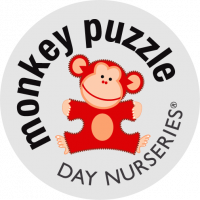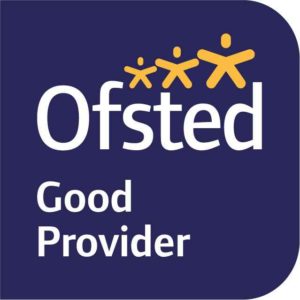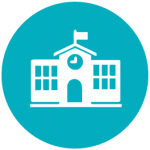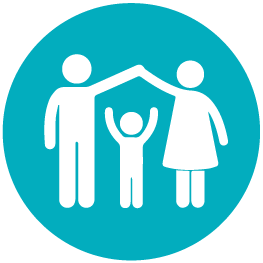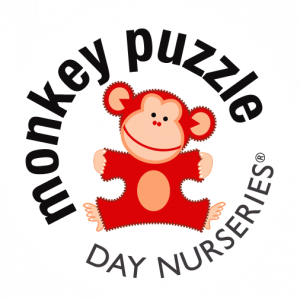At Monkey Puzzle Day Nurseries our approach to your child’s development starts with the Early Years Foundation Stage (EYFS) curriculum and goes way further to help your child make the most of their time at nursery and prepare them for the journey ahead.
Hygge Learning
We believe children learn best when learning is self-directed, when they have supportive, collaborative adults and a stimulating environment with natural rich resources and access to wide open spaces.
Young children learn from everything around them – the people, the environment, the atmosphere, the routine, the experiences and opportunities. All of these elements of the Nursery make up “the nursery curriculum”.
The staff plan to deliver a broad and balanced curriculum that touches on all aspects across the year, based on the observations of children’s play and what their interests are; and children’s levels of understanding and their engagement in learning. Staff assess what children know and how they are building on it. This appears in the weekly enhancements to the continuous provision, as well as in the adult-led planning and group-time work.
We maintain our Quality of Education by our 3 I’s approach
- Intent
What do we want the children to learn - Implementation
How we will help them to progress in the seven areas of learning - Impact
How do we know that what we have done, has helped the child to learn? What has the child learnt?
We aim to achieve all three of these by:
- A fully embedded ethos/vision
- A clear understanding of the educational approach
- Characteristics of Effective Learning and a well embedded approach to teaching and learning; and behaviour and attitudes
- Cultural capital – Understanding children’s backgrounds and experiences; Developing knowledge and understanding of the community and wider world; Broadening minds and outlook on life; Experiencing awe and wonder
- Personal development
Early years foundation stage
The Early Years Foundation Stage, EYFS, is a statutory framework that sets the standards that all early years’ providers must meet to ensure that the children in their care learn and develop well, stay safe and are kept healthy. Within this framework, there are 7 areas of learning, with 17 ‘Early Learning Goals’ to be aimed for by the end of children’s Reception year in school.
The Framework is split into 3 sections;
- Characteristics of effective teaching and learning
- Prime areas
- Specific areas
Characteristics of Effective Teaching and Learning
The most successful ways in which children learn and develop are through playing and exploring, learning actively, and creating and thinking critically. These are called the “characteristics of effective learning” and are one part of the Early Years Foundation Stage.
Playing and Exploring, which is about finding out and exploring, playing with what they know and being willing to ‘have a go’.
Active learning, which is about being involved and concentrating, persevering and enjoying achieving, what they set out to do.
Creating and thinking critically, which is about having their own ideas, making links in their learning and developing strategies for ways of doing things.
Prime Areas
Personal, Social and Emotional Development, which is about making making relationships and getting along with other children and adults, having confidence and self-awareness, and being able to manage their feelings and behaviour.
- Forming meaningful relationships with other children and adults
- Having respect for other people
- Being an individual and also belonging to a community
- Being able to express and cope with your feelings and emotions
- Becoming independent and helping others
- Being able to make choices and taking responsibility
- Developing a sense of fairness, what is right and wrong
- Understanding appropriate behaviour
- Respecting and being able to empathise with others
- Having feelings of wonder and joy
- Sharing and celebrating festivals, traditions and special occasions.
Communication and Language which is about developing good listening and attention skills, to have good understanding and also speak and express themselves clearly.
- Developing confidence to be able to express your opinions and make your own choices
- Talking, listening, discussing and recalling experiences in a range of different situations
- Being able to describe and explain things in your own words, using your own ideas
- Listening to stories, anticipating what might happen and responding appropriately to the story
- Listening and following instructions and being able to answer questions appropriately.
Physical Development which is about large and small movements in a variety of ways, having good control and co-ordination, handling different tools and equipment well. It also covers health and self-care, looking at ways to keep healthy and safe.
- Developing confidence and independence through achievement
- Learning to use tools competently
- Learning co-ordination and control
- Building confidence, stamina, energy and strength
- Learning to move in a variety of ways
- Expressing yourself through movement
- Understanding the importance of exercise
- Learning to make healthy choices about food, and taking care of ourselves and our healthy body
Specific Areas
Literacy, which is about stories, rhymes, books and reading, and also mark making/writing.
- Believing in yourself as a reader and writer and developing the skills to become one
- Enjoying stories and a wide range of reading materials e.g. books, poems, print in the environment
- Learning to recognise letters and the sounds they each make
- Learning to make marks and give meanings to those marks.
Mathematics which looks at numbers, counting, shape, space and measure.
- Appreciating pattern, and relationships in mathematics
- Logical thinking
- Exploring, comparing and describing shapes, quantities, height, etc.
- Finding ways to solve mathematical problems e.g. estimating, measuring
- Learning to use and understand mathematical language
- Understanding and using number
- Counting, understanding and using numbers
- Calculating simple addition and subtraction problems
Understanding the World which is about people and communities and helps children understand about the world they live in, including ICT.
- Exploring the local environment
- Finding out about the past
- Developing an understanding of travelling to other places, distance and maps
- Using technology – making models in a variety of ways
- Planning, making and designing things
- Exploring and solving problems
- Using I.C.T. for a range of purpose
- Exploring, experimenting and having ideas
- Being curious – wondering why, how, what if?
- Understanding why and how things happen
- Observing carefully and closely
- Experiencing and changing materials
- Sharing the joy of finding things out with your friends
Expressive Arts and Design which develops different forms of expression, exploring music, dance and song, encouraging children to be creative in all respects. It also focuses on media and materials and imaginative/pretend play.
- Representing and communicating your thoughts, ideas and feelings in a variety of ways e.g. art, music, movement dance, language and design and technology
- Expressing yourself through a wide range of media e.g. paint, clay, drawing, 3D materials
- Experiencing and enjoying beauty
- Imagining, expressing and creating
- Having original ideas and thoughts
Babies curriculum
Your child will learn through our own curriculum that focuses on the magic of play, supported by trained staff who have a passion for providing memorable learning experiences with expertise in the specific areas of the EYFS that your child will need to develop and progress through their infancy. Building your child’s communication and language, supporting their physical development, and boosting their emotional development too.
Tweenies curriculum
Your child will learn through our own curriculum that focuses on the magic of play, supported by trained staff who have a passion for providing memorable learning experiences with expertise in the EYFS and child development. At this age your child will experience greater opportunities to explore expressive art and design, literacy, mathematics, and understanding the world. Our curriculum is not confined to four walls and you’ll find learning lives in every space including the outdoors, and the world around us.
Toddler curriculum
Your child will learn through our own curriculum that focuses on the magic of play, supported by trained staff who have a passion for providing memorable learning experiences with expertise in the EYFS and child development. At this age your child will experience greater opportunities to explore expressive art and design, literacy, mathematics, and understanding the world. Our curriculum is not confined to four walls and you’ll find learning lives in every space including the outdoors, and the world around us.
Preschool curriculum
Your child will learn through our own curriculum that focuses on the magic of play, supported by trained staff who have a passion for providing memorable learning experiences with expertise in the EYFS and child development. At this age your child will experience a full range of learning activities to prepare them for life at this age and beyond. They will be guided in understanding the world, create expressive art and design masterpieces, and be immersed in an environment full of literacy and mathematics. Our curriculum is not confined to four walls and you’ll find learning lives in every space including the outdoors, and the world around us.
